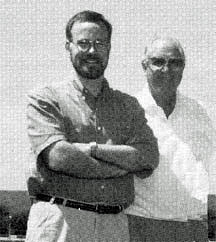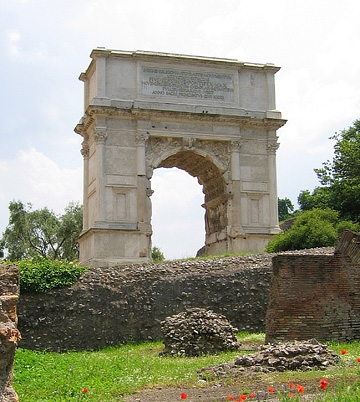Jesus said it bluntly: “Blessed are the peacemakers, for they will be called children of God” (Matt 5:9). Time and again the rest of the New Testament echoes his high regard for peacemaking:
Let us therefore make every effort to do what leads to peace and to mutual edification (Rom 14:19; NIV).
Bind yourselves together with peace (Eph 4:3).
Try to live in peace with everyone (Heb 12:14).
Each of these passages sets peacemaking within the context of Christian community. We seek to live in peace as part of our fellowship together.
Martin Luther was correct. The Church of Jesus Christ is indeed a mighty fortress, against which the gates of Hell cannot prevail. But individual Christian communities are sometimes quite fragile. Frequently, they shatter because members seek their own good, rather than the benefit of the community as a whole. The sow seeds of division by their selfishness. But, you and I are called to be peacemakers within our churches, to preserve the unity and seek the wholeness of Christian community. Paul’s instruction quoted above, “bind yourselves together with peace,” falls within a broader exhortation to church unity:
Be humble and gentle. Be patient with each other, making allowance for each other’s faults because of your love. Always keep yourselves united in the Holy Spirit, and bind yourselves together with peace. We are all one body, we have the same Spirit, and we have all been called to the same glorious future (Eph 4:2-4).
We are to make peace among our brothers and sisters in Christ because we are one body together, united by the one Spirit.
How can you be a peacemaker in your church? Note carefully Paul’s wise counsel. First, “be humble and gentle” (Eph 4:2). Don’t think too highly of yourself, but consider others better than yourself (Phil 2:3). If you have a complaint or criticism, communicate it with humility, realizing that you could be wrong. And in all interactions, treat people with gentleness, remembering that they are precious to God.
Second, you can make peace within your fellowship by being “patient with each other, making allowance for each other’s faults because of your love” (Eph 4:2). This call to patience implies that those around you will frustrate you with their slowness. They won’t repent quickly enough. They won’t serve actively enough. They will pray too long or not pray enough. Yet you must put up with their faults and weaknesses, even as they must put up with yours, thank God! It is certainly right to confront a brother or sister who sins. But patience is necessarily for all the little things others do that aren’t sinful, but just bothersome.
 When I read verse 2 with its call to humility, gentleness, and patience, I immediately think of one of the founding members of Irvine Presbyterian Church, a man named Jack. Jack was on the search committee that called me as pastor, as he had been on the first committee that called Ben Patterson, the founding pastor of the church. Jack had retired after a successful business career. He was the most respected and beloved man among church members – a well-deserved honor. When I arrived at the church, I quickly noted that Jack also had a room named after him, the only room in the church named after any person, living or dead. It was apparent to me that Jack had great power within Irvine Presbyterian Church. (Photo: Jack and me quite a few years ago, when I had a lot of hair.)
When I read verse 2 with its call to humility, gentleness, and patience, I immediately think of one of the founding members of Irvine Presbyterian Church, a man named Jack. Jack was on the search committee that called me as pastor, as he had been on the first committee that called Ben Patterson, the founding pastor of the church. Jack had retired after a successful business career. He was the most respected and beloved man among church members – a well-deserved honor. When I arrived at the church, I quickly noted that Jack also had a room named after him, the only room in the church named after any person, living or dead. It was apparent to me that Jack had great power within Irvine Presbyterian Church. (Photo: Jack and me quite a few years ago, when I had a lot of hair.)
Jack could have used his power to dominate me, but he never chose to do so. Instead, he always used his power in a Christ-like manner. He was a strong, outspoken supporter of my ministry.
As is natural, however, at times he believed that my leadership was lacking or misdirected. Jack would make an appointment to see me. After affirming my ministry and reassuring me of God’s call to be pastor of the church, he would tell me what was bugging him. Every single time he did this with humility, gentleness, and patience. Jack could have wielded his power to coerce my agreement. But he never even tried to do it. He could have wounded my spirit by pointing to his superior wisdom. He never did that. He could have said that he was sick and tired of trying to help young pastors grow up. But he never said anything like that. When Jack and I finished our meetings, I always felt encouraged. In Jack’s woodshed there weren’t any switches, just abundant peace and lots of wisdom.
In my next post I want to say a little more about being a peacemaker in church.
This post is part of a series: Seeking the Peace of Christ: Peacemaking and Christianity. You can read or link to the series by clicking on the series title.

